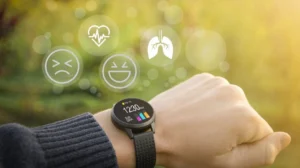Unknown side effects of having much Vitamin E

Vitamin E is crucial for health, aiding in blood clot prevention ,cell protection, and immune support. but there is also side effects of having much Vitamin E .
Obtained from foods l like almonds and spinach, excessive supplement intake can lead to toxicity with symptoms ranging from nausea to sever bleeding. Always consult a doctor before starting supplement .
Vitamin E is a valuable nutrient for the body that plays an important role in preventing blood clots, protecting your cells from oxidative damage, and supporting immune function .It is also quite useful for your skin and prevents it from damage with its wonderful antioxidant properties. Vitamin E can be added to the diet by eating seeds, nuts, vegetables and fortified foods, however, in case of deficiency, supplements are recommended.
Vitamin E can help improve lung function brain health, liver health and also relieve menstrual pain as per several studies.
How much Vitamin E to consume per day?
In general people are advised to consume around 15 mg of vitamin E per day, and the largest daily intake that is considered safe is 1,100 mg a day.
Vitamin E is a nutrient that’s important to vision, reproduction, and the health of your blood, brain and skin.
Vitamin E also has antioxidant properties. Antioxidants are substances that might protect your cells against the effects of free radicals — molecules produced when your body breaks down food or is exposed to tobacco smoke and radiation. Free radicals might play a role in heart disease, cancer and other diseases. If you take vitamin E for its antioxidant properties, keep in mind that the supplement might not offer the same benefits as naturally occurring antioxidants in food.
Foods rich in vitamin E include canola oil, olive oil, margarine, almonds and peanuts. You can also get vitamin E from meats, dairy, leafy greens and fortified cereals. Vitamin E is also available as an oral supplement in capsules or drops.
Vitamin E deficiency can cause nerve pain (neuropathy).
The recommended daily amount of vitamin E for adults is 15 milligrams a day.
What the research says
Research on vitamin E use for specific conditions shows:
- Alzheimer’s disease. Some research has shown that high-dose vitamin E might delay the progression of Alzheimer’s disease in people who have been diagnosed with mild to moderate Alzheimer’s disease. Other studies haven’t shown this benefit. Vitamin E supplements appear to have no effect on whether people with mild cognitive impairment progress to Alzheimer’s disease.
- Liver disease. Studies show that vitamin E might improve symptoms of nonalcoholic fatty liver disease. However, some evidence suggests that taking oral vitamin E for this purpose for two years is linked to insulin resistance.
- Preeclampsia. Increasing your intake of vitamin E hasn’t been shown to prevent this pregnancy condition that affects blood pressure.
- Prostate cancer. Research shows that vitamin E and selenium supplements don’t prevent prostate cancer. There is also concern that use of vitamin E supplements might increase the risk of prostate cancer.
Our take
side effects of having much Vitamin E
Most people get enough vitamin E from a balanced diet. If you’ve been diagnosed with mild to moderate Alzheimer’s disease, some research suggests that vitamin E therapy might help slow disease progression.
However, oral use of vitamin E might increase the risk of prostate cancer. Use of the supplement can pose other serious risks, particularly at high doses and if you have other health conditions or have had a heart attack or stroke.
Safety and side effects of having much Vitamin E
When taken at appropriate doses, oral use of vitamin E is generally considered safe. Rarely, oral use of vitamin E can cause:
- Nausea
- Diarrhea
- Intestinal cramps
- Fatigue
- Weakness
- Headache
- Blurred vision
- Rash
- Gonadal dysfunction
- Increased concentration of creatine in the urine (creatinuria)
Taking higher doses of vitamin E might increase the risk of side effects. Also, there is concern that people in poor health who take high doses of vitamin E are at increased risk of death.
Use of vitamin E can interact with many conditions. For example, research suggests that oral use of vitamin E might increase the risk of prostate cancer. Other research suggests that vitamin E use might increase the risk of death in people with a severe history of heart disease, such as heart attack or stroke. Talk with your doctor before taking vitamin E if you have:
- A vitamin K deficiency
- An eye condition in which the retina is damaged (retinitis pigmentosa)
- Bleeding disorders
- Diabetes
- A history of a previous heart attack or stroke
- Head and neck cancer
- Liver disease
The supplement might increase your risk of bleeding. If you’re planning to have surgery, stop taking vitamin E two weeks beforehand. Also, talk to your doctor about vitamin E use if you’re about to have or you just had a procedure to open blocked arteries and restore normal blood flow to your heart muscle (angioplasty).
With Thanks and Reference to:https://www.mayoclinic.org/drugs-supplements-vitamin-e/art-20364144 and https://timesofindia.indiatimes.com/life-style/health-fitness/health-news/unknown-side-effects-of-taking-too-much-vitamin-e-supplements/articleshow/117341480.cms






